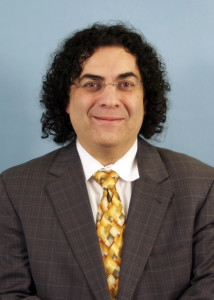Region C candidate wants to focus on expanding non-tax revenue, better tone in communications
By Mike McGann, Editor, UnionvilleTimes.com
Back in the winter, if you asked Gregg Lindner whether he was going to take another stab at running for the Unionville-Chadds Ford Board of Education, you would have come away with the impression that it was doubtful.
Lindner, who is seeking a Region C seat, lost a razor-thin race to Frank Murphy in 2009 after serving on the board for four months, figured between his career and family he could sit this one out. But as winter turned to spring, he saw things that began to concern him — and challenges facing the district that he felt his mix of skills and experience could help it work through.
“If I thought that the group representing Region C (currently) brings to the table, what I do, I wouldn’t be running,” Lindner said. Between the budget, the ongoing teachers negotiation and the retirement of Superintendent of Schools Sharon Parker, he said, he found folks asking him to run again and he had to again seriously consider it.
Ultimately, little more than a week before the May primary, Lindner and running mate Kathleen Meehan Do decided to run as write-in candidates, and they both won the Democratic nomination for Region C. Timotha Trigg and Sharon Jones won the GOP nod, while Frank Murphy won both party’s nomination.
A couple of things have him concerned, Lindner said. One, the long-term effects of budget cutting and what he says he feels is a change in tone when it comes to communication by the board.
On the current fiscal situation, he says he’s worried about a “downward spiral” — that small cuts each year might not seem like they have impact, but as time goes by and those cuts accumulate, it might ultimately take effort and even more money to reverse. While he recognizes the tough times, he says he wonders whether small savings now could lead to bigger, more expensive problems down the road.
He also takes issue with claims the board has improved communication with residents — or that there were any specific issues in past years with previous boards.
“I used to ask questions, and I got answers,” he said of previous boards.
At times, he said, he worries that this board has played to a specific audience: those diametrically opposed to tax hikes of any kind, rather than balancing the cost against the educational impact. He cites claims that he and others support “taxing to the max” — which he says he thinks is an unfair and inaccurate characterization. He does wonder whether it would have made more sense to tax to the Act 1 limit (a state-set rate increase limit based on the overall annual rate of inflation) — a 1.4% increase, rather than the board’s decision to increase taxes by 1.2%
As the board could have sought exceptions for pensions and special education, Lindner notes, the incremental difference, was nowhere near the maximum tax increase possible — and amounted to about $20 per taxpayer from a budget that required layoffs of support staff in the schools.
“Neither Kathy or I believe that taxing to the exceptions to the exceptions was the right move,” he said. “But we did support 1.4%, which was about $20 a year in taxes, at a time when we were forced to lay off people.”
Lindner says he agrees that there are limits to what the taxpayers can handle, which makes it all the more important for the board to focus on non-tax revenue — and while there’s been talk about the subject since Lindner was on the board briefly in 2009, no progress has been made.
“We have to look for alternative funding,” he said. “We need to have policies in place to allow advertising — appropriate advertising — and other ways to bring in money from the local business community. That’s one area — working in media research — where I’d like to use my own experience.”
“There’s a lot of talent in this community, folks who could help go after grants,” he said.
One other change Lindner said he’d like to see: an afterschool activity bus running — at least — from the high school/middle school complex to the four local elementary schools, to make it easier for students to participate. Without a ride home, Lindner worries that some students are locked out of sports and other activities.
“I’d like to see us try a pilot program,” he said. “And of course, it would have to be funded by the users — but I think a lot of parents would be willing to pay for that.”
Lindner has has three children, all of whom attend Unionville-Chads Ford schools. He has been active in coaching in local youth sports — and has been involved in a variety of different charitable and fund raising events. He has a masters degree in quantitative analysis and urban sociology from the University of Maryland, where he also completed his undergraduate work.
Professionally, Lindner has spent more than three decades working in media research, managing Scarborough Research before joining parent company Arbitron, as an Executive Vice President.
EDITORS NOTE: This is the fifth in a series of profiles of the Board of Education candidates. Next up: Timotha Trigg.
Previously run profiles:
Region A
Region C








Trackbacks